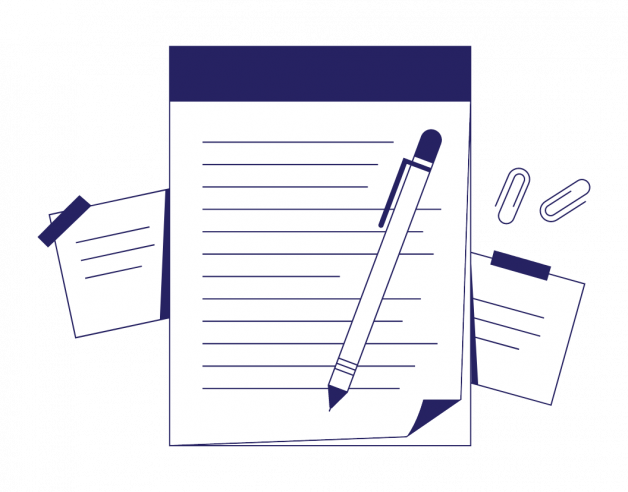
-
3-minute read
-
20th March 2023
Grammar Tips: Adverbs
Have you ever felt confused about what, exactly, adverbs are? If so, you’ve come to the right place! An adverb is a word used to modify (or describe) something – usually a verb or an action word.
It’s important to learn how to use adverbs effectively because they can add power and life to whatever you’re writing – but if overused, they can do just the opposite. In this post, we’ll break down how to use adverbs in your writing.
What Are Adverbs?
As we mentioned, adverbs are words that modify certain types of words, normally verbs. Verbs are action words, so essentially, you use adverbs to describe how, when, or where an action is performed. There are different types of adverbs for different purposes, so let’s dive into a few.
Adverbs of Manner
Some adverbs describe how an action is performed. One way to spot them is to look for the suffix -ly. Here are a few examples:
I like to work slowly so I don’t make mistakes.
The moon is shining brightly tonight.
Adverbs of Place
As you may have guessed, adverbs of place describe where an action is performed. They might indicate a direction or distance, and they’re usually placed after the object or near the main verb of the sentence. Here are a few examples:
Can you bring the boxes downstairs?
That family is moving to a house nearby.
Adverbs of Time or Frequency
Some adverbs describe when or how often something happens. For example:
We should start getting ready for the party now.
She’s bringing the kids over tomorrow.
Tips for Using Adverbs
1. The Position of the Adverb Matters
Where you place an adverb in a sentence can make all the difference in what it modifies. If it’s placed at the beginning of a sentence, for example, it modifies the whole sentence:
But if it appears at the end of a sentence, then it only modifies the main verb:
Find this useful?
Subscribe to our newsletter and get writing tips from our editors straight to your inbox.
Subscribe to Beyond the Margins and get your monthly fix of editorial strategy, workflow tips, and real-world examples from content leaders.
2. Be Careful When Using Adverbs To Describe Adjectives or Adverbs
Adverbs can be used to modify adjectives or other adverbs to emphasize them. However, this often leads to wordiness and redundancy, which will normally weaken your writing. For example:
The athlete moved exceptionally quickly.
A particularly overused adverb is “very,” which can almost always be removed, especially if you want your writing to be clear and concise.
3. Don’t Overuse Adverbs
While adverbs can add more detail and power to your writing, the key is to use as few as possible. If you can swap an adverb and verb combo for a stronger verb, always do so. For example:
Conclusion
In summary, adverbs are words that modify certain parts of speech – usually verbs! While they can be useful for adding detail and life to your writing, the key is to use them sparingly.
We hope this post has helped you to understand what adverbs are and how to use them. If you’d like your work checked for issues with spelling, grammar, punctuation, word choice, and more, our editors are happy to help! You can even get 500 words proofread for free.
FAQs
What’s the difference between adverbs and adjectives?
Adjectives only modify or describe nouns, while adverbs can modify all other parts of a sentence.
Do adverbs have hyphens?
You should never use hyphens with adverbs. This includes linking the adverb with the word it’s modifying (e.g., “brightly-lit” is wrong; “brightly lit” is correct) and adding a hyphen before the suffix (e.g., “smooth-ly” is wrong; “smoothly” is correct).




